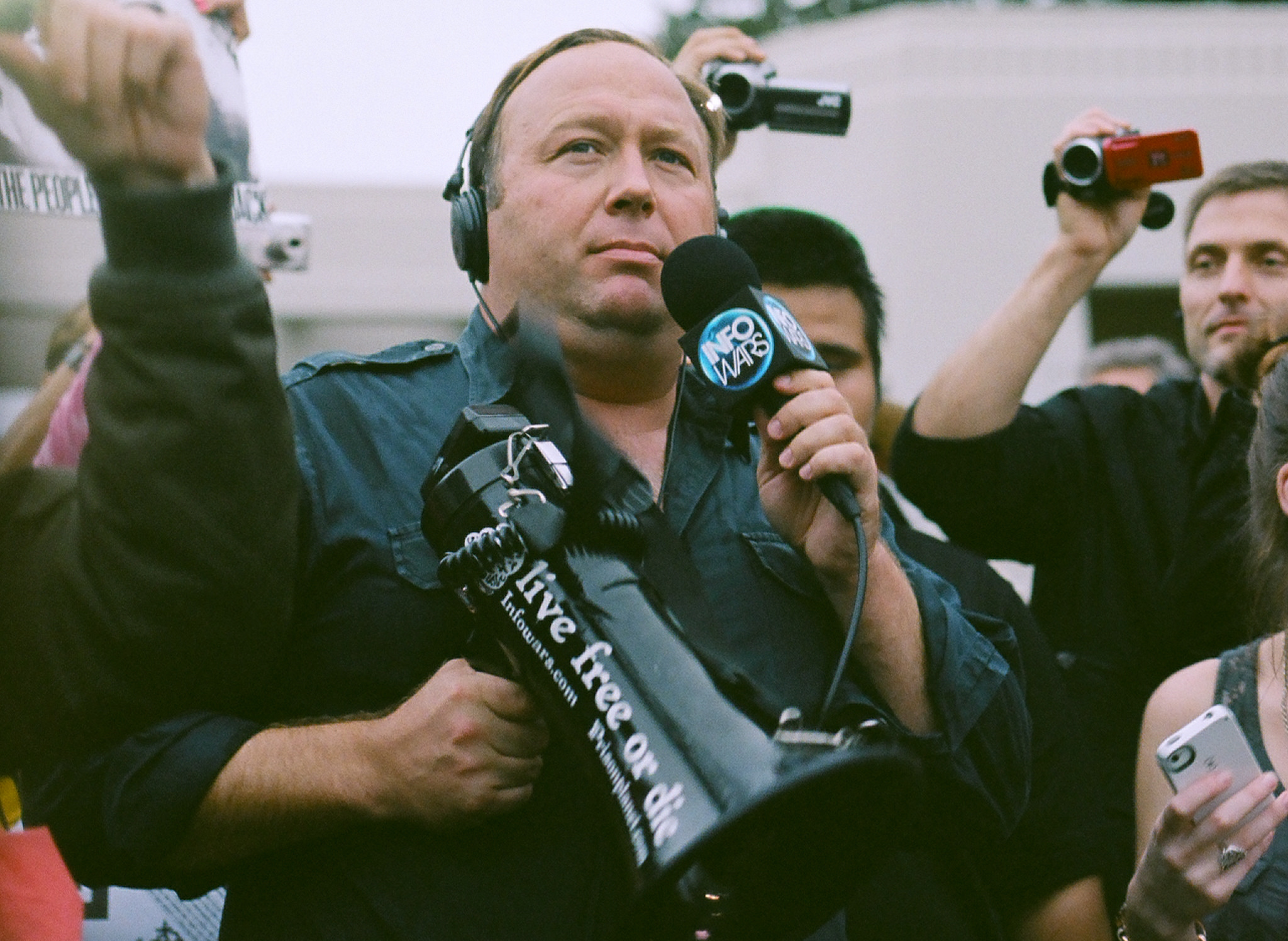Alex Jones is bankrupt. The host and owner of the far-right fake news conspiracy-peddling website “Infowars.com” owed $1.5 billion dollars by the end of 2022 to people harmed by his lies about the massacre at an elementary school in Sandy Hook CT a decade beforehand.
The cascade of losses in libel suits began with a Texas jury’s Aug. 5, 2022 decision to award $50 million in actual and punitive damages to parents of the massacre’s victims. Four more libel suits in Texas and Connecticut also ended with guilty verdicts and heavy fines.
Jones’ lies about Sandy Hook began within hours of the massacre, and were frequently repeated since then. He falsely claimed that the Sandy Hook elementary school massacre of 2012 was a hoax and that the parents of the children killed at the school were “crisis actors.” As a result, Sandy Hook parents were subjected to harassment and other damages, on top of the profound grief of losing their children. One family has had to move 10 times to avoid Jones’ followers.
Jones’ attorneys argued that the First Amendment protects his right to make mistakes and that other people, not Jones, were to blame for the harassment.
But it’s too late for that argument. Jones already lost the first Texas libel suit by refusing to cooperate with the court, and default judgments were issued. The only question in the Texas case and others involves the amount of damages.
It is likely that plaintiffs will win these and other possible cases. Even so, if all of Jones’ assets are seized and distributed to victims, a broader question is the extent to which people without assets may continue to be punished for libel.
In other words, what happens when Jones or his more impoverished supporters take up his cudgel of right-wing extremism and persist with their campaigns of defamatory falsehoods?
This problem of defamation by low-income people shows how the traditional model of civil damages for proven libel has come unstuck with the arrival of digital media, according to Eugene Volokh in a June 2021 UC Davis Law Review.
As compensatory damages have become practically unavailable to more and more libel victims, courts have shifted to a remedy that had long been seen as categorically forbidden — injunctions against libel. And this trend seems to have accelerated as the Internet has democratized access to the media. As Judge Posner noted in one recent Internet libel case, the traditional ban on libel injunctions “would make an impecunious defamer undeterrable. He would continue defaming the plaintiff, who after discovering that the defamer was judgment proof would cease suing, as he would have nothing to gain from the suit, even if he won a judgment.”
A further problem is that this digital media dilemma is causing a return to criminal libel laws, most of which were either been struck down by the courts or repealed by legislatures in the 1960s and 70s.
For the time being, intermediaries are censoring and exercising prior restraint over libel, invasion of privacy, hate speech, and other damaging content, in ways that the First Amendment precludes the government from doing.
Curiously, then, we seem to be reinventing, and many of us seem to be approving of, intermediary control: it’s just that instead of newspaper and broadcaster editors choosing what to block, we’re having that done by Facebook, Twitter, and occasionally other companies…
For decades, the main lever for dealing with libel and disclosure of private facts has been the threat of civil damages liability. As that lever has become increasingly irrelevant for many speakers, the legal system has had to grasp for other levers, odd as they might have seemed in 1993. Likewise, for decades, the main lever for dealing with extremist speech and with conspiracy theories has been the control exerted by media intermediaries. As that lever has fallen away, people have called for the (social media) platforms to step into the gap. Some of these developments have been promising. Some have been misguided. But they all represent, I think, the legal system’s largely bottom-up struggle with the dark side of cheap speech and of the democratization of mass communications.
What happens when the platforms themselves democratize, and hundreds of Twitters and Facebooks proliferate (perhaps under anti-trust laws), and more intermediaries start to have less power of censorship in cases where the content is illegal, invasive or hateful?
Clearly, the legal landscape of the extended digital revolution is fractured with enormous complications and contradictions. The usual remedies in law will need new thinking if they are to be effective.


